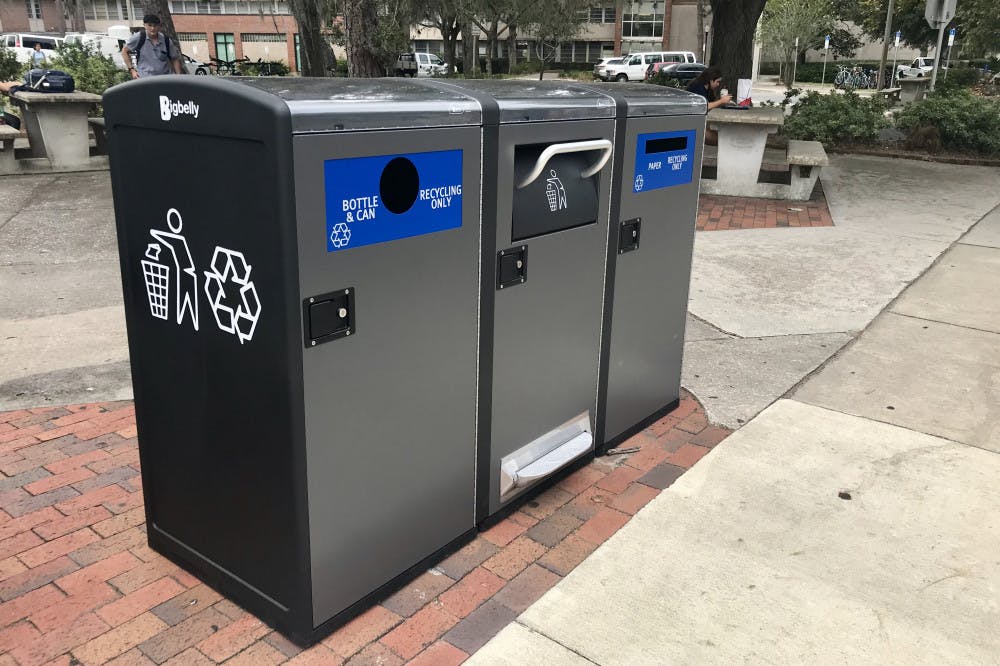When Paul Gruber finishes a building model he’s worked on for weeks, the first thing he does is breathe a sigh of relief.
The second thing he does is dispose of his leftover scraps and papers.
Gruber, a 20-year-old UF architecture junior, said he creates a large amount of paper and wood scraps with his projects.
Gruber and UF’s more than 50,000 students contribute to the large amount of waste produced at a university of it’s size. Between the dorms, dining halls and everyday activities of the students and staff, about 9,000 tons of trash are sent to the landfill from UF every year, said Liz Storn, a program coordinator at the Office of Sustainability.
To help manage campus garbage, UF Facilities Services installed Bigbelly trash cans on campus in early October to keep waste contained and out of sight, said Mark Helms, the assistant vice president of Facilities Services.
The trash cans can be found in 70 high-traffic locations around campus, like the Hub and the Plaza of the Americas, Helms said. The cans can hold five times as much landfill waste as traditional trash cans and send alerts to Facilities Services when they are full.
“The real value is the reduced number of times the units have to be emptied,” Helms wrote in an email.
The trash cans come at a price — each unit costs about $2,000 per year, Helms said. However, because they are leased from Bigbelly, the company is responsible for yearly maintenance and cleaning.
“We believe that the majority of the lease cost will be recovered in reduced pick up,” Helms said.
Storn said there has been an increase in both recycling and composting on campus. About 2,500 tons of campus waste are recycled each year and about 4,000 tons are composted.
Still, the high amounts of waste take an environmental and financial toll, Storn said.
“If you look at it, producing waste takes energy, and it takes money,” she said.
Storn said it’s inevitable that a large university will produce a lot of debris, but partnerships between different groups on campus work to reduce the environmental impact.
Gruber said it’s important to be sustainable on campus.
“I think there comes a point when our Earth can’t handle all the waste that we’re producing at the rate we’re producing it,” Gruber said. “We need to find alternative ways to reduce if we want to continue this lifestyle.”






